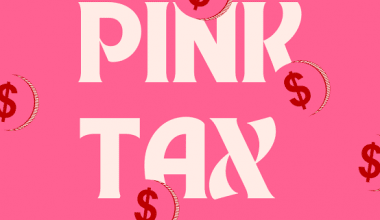401(k) plans are an excellent way to start saving for retirement. These employer-sponsored plans allow you to make pretax contributions of up to $22,500 in 2023 or $20,500 in 2022. Some employers will also match a portion of your payments, resulting in “free money” for you. However, when you retire, your withdrawals are subject to income taxes and other regulations. Here’s everything you need to know about 401k taxes in relation to contributions and withdrawals.
Do You have to Pay Taxes on 401k Contributions?
A 401(k) is a tax-advantaged savings account. That is, when you contribute money, you do not pay income taxes. Instead, your employer deducts your contribution from your paycheck before it is subject to income tax. You do not have to pay income taxes on the growth of your 401(k) investments when you chose them and as they grow. Instead, you postpone paying the taxes until you remove the funds.
Remember that while you do not have to pay income taxes on 401k contributions, you do have to pay FICA taxes, which go toward Social Security and Medicare. That is, FICA taxes are still assessed on the entire paycheck amount, including your 401k contribution.
Do 401(k) Contributions Have to Be Deducted on Your Tax Return?
401(k) contributions are not deductible on your tax return. In fact, you cannot deduct that amount of money.
Employers take 401(k) contributions into account when reporting your earnings at the end of the year. As an example, suppose you earn $50,000 per year and contribute $5,000 to your 401(k) account. Only $45,000 of your earnings are taxed. That $45,000 will be reported on your W-2 by your employer. If you try to deduct $5,000 from your taxes, you will be double-counting your contributions, which is improper.
How Much Do You Pay in Taxes on 401k Distributions?
A distribution is an official term for a withdrawal from a 401(k) after retirement. While you have delayed taxes until now, these payouts are now subject to regular income taxation. That means your distributions will be taxed at standard income tax rates. You only pay taxes on the money you withdraw. If you remove $10,000 from your 401(k) during the year, you will only be taxed on that $10,000. Although you can remove your whole account in one lump amount, doing so may put you in a higher tax bracket for the year, so it’s best to take distributions gradually.
The good news is that all you’ll have to pay is income tax. FICA taxes (for Social Security and Medicare) only apply while you are working. You will have already paid them when you contributed to a 401(k), so you will not have to pay them again when you withdrew funds. (In fact, when you start utilizing Social Security and Medicare, you’ll start to see the benefits of paying these taxes.)
401(k) distributions may also be taxed by state and municipal governments. Your payouts, like those of the federal government, are considered ordinary income, and the tax you pay is determined by the income tax rates in your state. If you live in one of the states that does not have an income tax, you will not have to pay any income tax on your distributions. So, depending on where you live, you might never have to pay state income taxes on your 401(k) contributions.
401(k) Withdrawal Taxes
An early withdrawal or cashing out before the age of 591/2 has three major repercussions in standard 401(k)s:
- Taxes will be deducted. In general, the IRS requires automatic withholding of 20% of a 401(k) early withdrawal for tax purposes. So, if you withdraw $10,000 from your 401(k) at the age of 40, you might only get around $8,000.
- The IRS will fine you. When you file your tax return, the IRS normally levies a 10% penalty if you remove money from your 401(k). This could imply providing the government an extra $1,000 from the $10,000 withdrawal.
- You will have less money for the future, especially if the market is down when you begin withdrawing. This could have long-term ramifications.
There are numerous exceptions. However, if you:
Receive the payoff over time, you may be able to avoid the IRS’s 10% penalty for early withdrawals from a typical 401(k).
- Apply to the plan administrator for a hardship distribution.
- If you are over a specific age, you may leave your work.
- They are divorcing.
- Give birth to a kid or adopt one.
- Are or will be disabled.
- Place the funds in a different retirement account.
- Pay an IRS levy using the funds.
- Use the funds to cover certain medical expenses.
- Were victims of a natural calamity.
- You overpaid in your 401(k).
- We were both in the military.
- Die.
Finally, beginning in 2024, a provision in the Secure 2.0 Act, which became law at the end of 2022 and altered many of the government’s retirement plan standards, will allow extraordinary emergency 401(k) payments of up to $1,000 per year.
Withdrawal After Age 59 1/2
The money you withdraw (also known as a “distribution”) from a standard 401(k) is taxable as ordinary income — like income from a job — in the year you take it. (Remember, when you put money in the account, you didn’t pay income taxes on it; now it’s time to pay the piper.) When you reach the age of 5912, you can begin withdrawing funds from your standard 401(k) without penalty. The tax rate on your distributions will be determined by your federal tax bracket at the time of your qualifying withdrawal.
Here are a few key points:
- If you’ve retired, you must begin taking required minimum distributions from your account when you reach the age of 73 in 2023.
- If you fail to make the statutory minimum distribution on time, the IRS may levy a penalty of 50% of the amount not disbursed.
- You are permitted to withdraw more than the minimum.
Employer Contributions to Your 401k: Taxes
In addition to your contributions, your employer may contribute to your 401(k). Once the money is in your account, it is treated the same as your contributions by the IRS. You will not be taxed while the funds are in your account, but you will be taxed when you withdraw them. When your employer contributes to your account, unlike your individual payments, you do not pay any payroll taxes. It actually is free money. It is not even eligible for the $22,500 contribution limit for 2023. The cap is $30,000 if you are at least 50 years old.
Taxes on 401k Account Rollover
There are a few reasons why you might desire to move money from your employer’s 401(k) to another account. The most usual scenario is when you leave a job and want to transfer assets from your previous employer’s 401(k) or your own individual retirement account (IRA).
When you take money out of a 401(k), you have 60 days to put it into another tax-deferred retirement plan. You will not have to pay any taxes or penalties on your withdrawals if you transfer the money within 60 days. You must report the transfer on your tax return, but you will not owe anything. If you do not make the transfer within 60 days, the money you took will be added to your gross income and subject to income tax. If you withdraw before the age of 59.5, you must additionally pay any applicable penalties.
You can execute a direct 401(k) rollover if you don’t want to worry about missing the 60-day deadline. This means that the money is transferred straight from one custodian (for example, the 401(k) provider) to another (for example, a brokerage handling your IRA) without ever passing through your hands.
Finally, keep in mind that if you roll over a 401(k) into a Roth IRA, you must pay the entire income tax on the amount carried over. There is, however, no 10% penalty for doing so before the age of 59.5. Other Types of 401(k) Plans Taxes
All of the preceding information pertains to standard 401(k) plans. There are, however, variants on the typical 401(k). Some of these have differing taxing rules.
Individual Retirement Accounts (IRAs): A Reminder
If your employer does not provide a 401(k) plan and you choose to contribute to a regular IRA instead, your tax situation will be fairly similar. Your employer, however, does not handle your IRA. Because you are responsible for making contributions, your employer will not take any of those payments into account when reporting your earnings at the end of the year. Because your employer does not deduct IRA contributions from your earnings, you must deduct your contributions on your tax return to receive the tax benefits.
The primary distinction between 401(k) plans and IRAs is that IRAs have a substantially lower contribution maximum. For 2023, you can only deduct $6,500 in IRA contributions. There are also income limits above which you will not be able to contribute the entire amount. If you are 50 or older, you can add an extra $1,000 per year as a “catch-up” payment, bringing your total contribution limit to $7,500.
Can You Get a Tax Deduction for Your 401k?
Planning for retirement necessitates considering not only how to accumulate wealth but also how to safeguard it. Employers provide 401(k) plans to meet the first need, but proper preparation can help ensure that our money stays with us. While 401(k) plans do not provide a tax benefit, they do allow you to reduce your taxable income. A financial advisor can assist you in developing a tax strategy for your investments and retirement resources. Here’s how you can use your 401(k) to decrease your tax liability and focus on saving.
How 401k Contributions Can Help You Save Money on Taxes
When you contribute to your 401(k), you do it before taxes. Essentially, some of the money produced through your labor is transferred directly into the account before taxes are deducted. That decrease in your take-home pay reduces your taxable income. You pay less income tax as a result.
Assume you have a salary of $40,000 per year. That puts you in the 12% tax bracket, according to the IRS’s marginal rates for the 2021 tax year.
You decide to participate in your company’s 401(k) matching program. They will match up to 3% of your annual pay, so you opt to contribute 5% of your own earnings plus the 3% your employer will match. You each give 8% of your annual wage, which amounts to $3,200. Remember that just your share of the total contribution lowers your taxable income. As a result, a 5% contribution to a 401(k) reduces your taxable income to $38,000.
As a result, you’ll owe only $2,855 in federal income tax, as opposed to $3,095 if you didn’t contribute to your 401(k) and paid taxes on your entire paycheck. That implies that every year you contribute to your 401(k), you will save $240. Furthermore, any interest received on those donations increases tax-free.
Distributions from a 401k: When Should Taxes Be Reduced?
While 401(k)s assist decrease your tax liability today, you will have to pay taxes on the money eventually. This is because 401(k) owners must pay income taxes when they take funds from their accounts.
The good news is that your taxes will most likely be lower then than they are now. As their income diminishes, most retirees fall into a lower tax rate. As a result, any disbursements from your account are taxed at a significantly lower rate.
Waiting till you’re 59 1/2 years old will also save you money. Withdrawing before that age usually leads in taxes and a 10% penalty. However, after you reach the age of 72, you must begin making withdrawals known as required minimum distributions (RMDs).
How Roth 401(k)s Reduce Your Tax Obligation in Retirement
Roth 401(k)s include many of the same benefits as standard 401(k)s. Employers, like the latter, sponsor these retirement plans. However, you contribute to them with after-tax dollars rather than pre-tax dollars. As a result, they have no effect on your current tax liability. As a result, you continue to pay taxes on your entire paycheck while contributing. However, you will not be taxed on future withdrawals, so your investment gains will grow tax-free.
As a result, the tax benefits of a Roth 401(k) are determined by your present and future tax rates. It is possible to earn more money in retirement and hence fall into a higher tax rate. If this is the case, a Roth 401(k) would be advantageous since you would avoid paying higher income taxes on withdrawals. If you expect your income tax will be lower in retirement, you’re probably better off with a regular 401(k).
You can also choose to utilize both. Taxpayers can contribute to both a standard, tax-deferred 401(k) and a Roth 401(k). However, take in mind that you must be at least 5912 to withdraw without penalty and must make minimum distributions after the age of 72.
Do I have To Pay Taxes On My 401k after Age 65??
Yes, you will have to pay taxes on 401k withdrawals after the age of 65.
At What Age Is 401k Tax Withdrawal Tax-Free?
The IRS permits penalty-free withdrawals from retirement savings after the age of 59 1/2, but requires withdrawals after the age of 72.
How Much tax Is Withheld From a 401k Distribution?
When you receive 401(k) distributions, the service provider is required to withhold 20% for federal income tax.
In Conclusion,
Traditional 401(k) plans offer tax advantages. You do not have to pay income taxes on your contributions, but you must pay other payroll taxes, such as Social Security and Medicare. You won’t have to pay income tax on 401(k) funds until you withdraw them. Also, you do not need to deduct your 401(k) contributions on your tax return because your employer considers them when calculating your taxable income on your W-2.
When you retire, all withdrawals are classified as normal income; along with other kinds of income, you pay income tax based on your tax brackets for the year. Roth 401(k) plans operate in a different manner. You pay income tax when you contribute to these plans, but you don’t have to pay any taxes when you withdraw the money.
Related Articles
- WHAT IS 401K: How It Works, Benefits & Withdrawal
- TAXES ON 401K WITHDRAWAL: Everything You Should Know!!!
- How to Take Money Out of 401K without Penalty (Detailed Guide)
- 401k INVESTMENTS: Meaning, How to Invest, Companies & Best Investments






